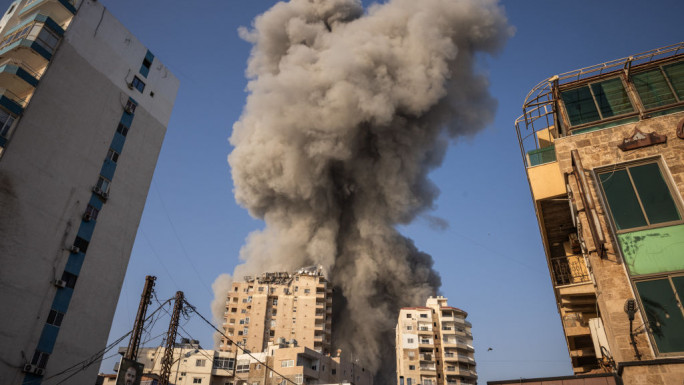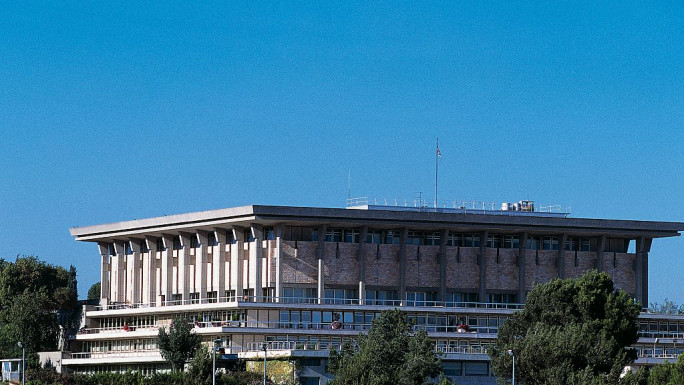Iraq’s Abadi refuses to relinquish Daawa party membership
Iraqi Prime Minister Haidar al-Abadi has refused calls to resign from the Islamic Dawa party, even as he said he was determined to press on with reforms that will damage high officials in his party.
An informed source inside the ruling coalition told al-Araby al-Jadeed that leaders of the Sunni Popular Movement have told Abadi he should resign from his party and dedicate himself to running the government, to distance himself from pressure from his party as those who will be affected by his reforms try to obstruct them.
The Dawa party is headed by former vice president Nouri al-Maliki, who lost his official position because of Abadi's reforms and has been implicated in corruption as Abadi's predecessor as prime minister of Iraq from 2006-2014.
Maliki is widely blamed for the weakness and reported incompetence of the Iraqi armed forces that has allowed the Islamic State group (IS) to seize control of several provinces inside Iraq.
| They requested Abadi resign from his party and dedicate himself to running the government, to distance himself from pressure from his party |
The source inside the ruling coalition said Abadi informed those who approached him of his determination to proceed with the reform of the government and root out corruption within the state.
He also said Abadi made clear his irritation at visiting Iranian officials who had tried to intervene on behalf of prominent political personalities affected by reform.
One of the leadership of the Dawa party, Ali a-Allaq, said Abadi would not resign from the party, adding that the calls for his resignation were illogical as the party supported Abadi's reforms and would not interfere with the running of government.
Allaq rejected accusations that the party was influencing Abadi's decisions as prime minister.
The source inside the ruling coalition said that at the last meeting of the leadership of the Dawa party Abadi said he was still an active member in the party and believed in its thought and ideology.
Maliki attempts to gain immunity
Meanwhile, a parliamentary source told al-Araby that prominent supporters of Maliki in his State of Law coalition had persuaded Hasan al-Saneed, an MP and member of the Dawa party, to resign from his seat in parliament to allow Maliki to take it and claim parliamentary immunity from prosecution.
Saneed is expected to resign from parliament in the next 24 hours, the source said, adding that Saneed would be financially compensated for his resignation.
The Iraq constitution grants immunity to the speaker of parliament and MPs as defenders of the people, but not to positions whose responsibilities are executive like the president, the vice presidents, the prime minister and government ministers.
Abadi's anti-corruption drive claims its first high official
| A total of 2171 corruption cases involving high officials, among them 13 ministers, had been referred to the courts |
An Iraqi court issued a ruling on Tuesday to imprison the former governor of Baghdad, Saber al-Isawi, for a year for financial corruption.
He is the first high-ranking executive official placed in prison after the package of reforms intended to root out corruption Abadi announced two weeks ago.
The charges related to the rebuilding of the historically significant Rashid Street in Baghdad in 2009. The central government allocated $7 million toward this project. It was widely alleged by many sources that the governorate's implementation of the project was corrupt.
The judge in the case, Radi al-Fartousi, indicated the ruling was preliminary and noted that the defendant had the right of appeal.
The Council of Public Probity in Iraq announced in a press conference last Thursday that 2171 cases involving high officials, among them 13 ministers, had been referred to the courts.
The council said that among those wanted by the authorities in connection with these cases were former ministers of defence, trade, electricity and transport were among those wanted by the judicial authorities.
The court issued an arrest warrant last Thursday for Abd Diyab al-Ajili, the former minister of higher education and scientific research, on the charge of neglecting his position.
Abadi issued an order two weeks ago to prevent officials accused in cases of corruption from leaving the country, hours after parliament's vote on the package of reforms he announced.





 Follow the Middle East's top stories in English at The New Arab on Google News
Follow the Middle East's top stories in English at The New Arab on Google News


